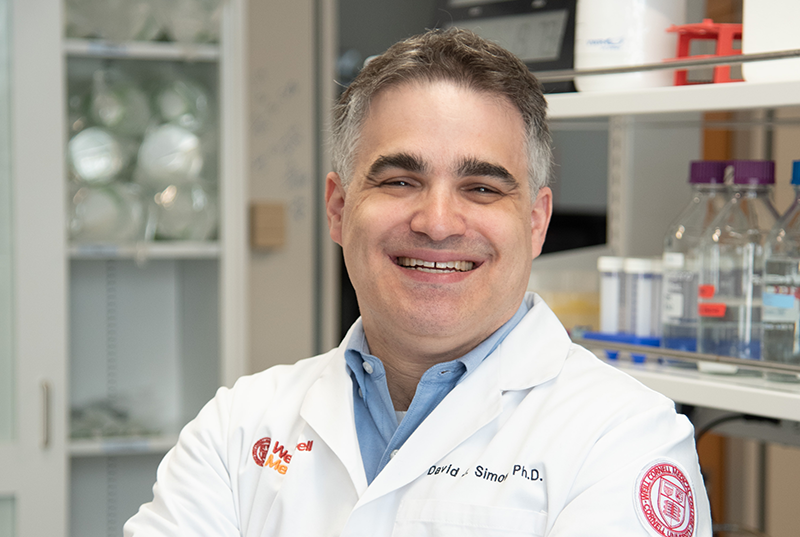Dr. David Simon, the Fernholz Foundation Research Scholar in Neuroscience and an assistant professor of biochemistry at Weill Cornell Medicine, was awarded the 2023 Pershing Square Sohn Prize for Young Investigators in Cancer Research on May 16.
The prize, now in its 10th year, is given annually to at least six early-career scientists based in the New York City area by The Pershing Square Sohn Cancer Research Alliance. Prizes are awarded to scientists who are pursuing innovative cancer research and taking risks that might preclude them from traditional funding. Winners receive $250,000 a year for up to three years and access to networking opportunities and an annual retreat with past winners.
For Dr. Simon, the prize will allow him to apply his knowledge as a neuroscientist to cancer research. “I'm not a traditional cancer biologist,” said Dr. Simon, who is also a member of the Sandra and Edward Meyer Cancer Center at Weill Cornell Medicine. “I think this award is an essential bridge for people like me. I don't think I could pursue this project and answer the questions that I’m deeply interested in answering without this sort of commitment.”
Dr. Simon’s lab at Weill Cornell Medicine traditionally studies the long cable-like fibers called axons that project from nerve cells and connect to other cells of the nervous system, and the mechanisms that control their survival. Axons from the nervous system also enter tumors, however the roles of these axons are unknown. Through a method that provides 3D spatial imaging, called whole mount immunolabeling, his lab is able to get a complete picture of a tumor and its axons in hopes of understanding the role that axons play in the tumor microenvironment, beginning with melanoma.
Using the technique to study skin malignancies seemed like a logical offshoot for the lab. “I realized that we were already studying sensory axons that project to the skin and the skin is the site where melanomas form,” he said. “I thought, ‘we have all of these tools to both visualize axons and to manipulate their function.’”
The award will give Dr. Simon and his lab the boost to keep going with research he otherwise would not be able to pursue by funding postdoctoral salaries and the costs surrounding research on mice. He is particularly excited about his access to The Pershing Square Sohn Cancer Research Alliance network. “One of the nice things about getting the prize is that it's a community,” he said. He welcomes the perspectives of past winners, while also bringing his new perspective to cancer research.
“The ultimate hope,” Dr. Simon said, “is that what we find in melanoma would be applicable to other cancer types.”

